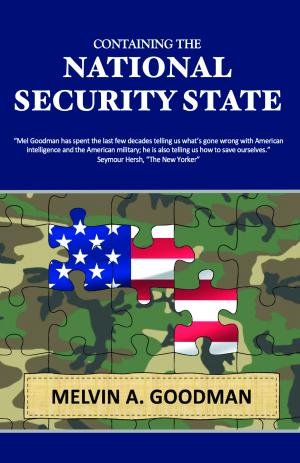YouTube
2019: In an interview with Ian Trottier, Mel discusses his book, “Whistleblower at the CIA”, as well as the Trump presidency.
5/11/2018: At University Bookstore in Seattle, Mel discusses his book “Whistleblower at the CIA”.
4/16/2018: On Heroes and Patriots, Mel discusses the bombing of Syria, Trump’s pardon of Scooter Libby, and the revolving door between CIA and Pentagon.
2017: On Report from Santa Fe, Mel discusses his book “Whistleblower at the CIA”.
2017: In a conversation with Truthdig editor-in-chief Robert Scheer, Mel discusses the topics of his book “Whistleblower at the CIA”.
2017: In an interview with Cat April Watters, Mel discusses his role writing situation reports for the CIA during the 1967 Six-Day War, and how the Israelis lied about attacking the U.S.S. Liberty.
2016: For OurFuture.org, Mel provides a brief assessment of the 2016 Democratic candidates and American militarism.
2015: At the Brennan Center for Justice, Mel gives a wide-ranging interview around the topics of his book “Failure of Intelligence: the Decline and Fall of the CIA”. (7 videos)
2015: Interviewed by John Sakowicz, Mel discusses his concerns about CIA Director John Brennan
2014: Interview on RT’s “Conversations With Great Minds”.
Part one: Mel discusses the politicization of intelligence and militarism.
2014: In part 2 of his interview with RT’s “Conversations With Great Minds”, Mel discusses Eisenhower’s farewell warning, and the failures of successive administrations.
2014: At the National Archives in Kansas City, Mel discusses the history of the CIA through the lens of its relationship with presidents from Truman to Obama
2013: Mel speaks about his book “National Insecurity: the Cost of American Militarism”
March 26, 2013: Mel speaks at the Time to Reset Defense conference
2013: Interviewed by Armstrong Williams, Mel discusses how reducing military spending will help stabilize the economy and support long-term national security.
2013: At the Commonwealth Club of California, Mel speaks about his book “National Insecurity: the Cost of American Militarism”.
12/03/2010: On Antiwar Radio, Mel discusses some of the implications of Wikileaks’ Cablegate data-dump.
10/08/2009: On Antiwar Radio, Mel discusses U.S. involvement in Afghanistan from the 1980s to the present
9/29/2009: On Antiwar Radio, Mel discusses the US occupation of Iraq, the torture investigations, and the Washington Post’s complicity.
11/17/2008: On Democracy Now, Mel discusses the appointments of John Brennan & Jami Miscik to Obama’s transition team.
“Where are we with regards to ‘Change’? This sounds like more continuity.”
6/23/2008: On Antiwar Radio, Mel discusses the politicization of intelligence under Robert Gates, and the inevitable failure of the war in Iraq.
2007: In an interview for Talking Stick TV, Mel discusses a wide range of topics around U.S. foreign policy and intelligence from the 1960s-2000s, including Vietnam; Israel & the U.S.S. Liberty; the Soviet Union; arms control; and CIA directors Helms, Casey & Gates
2007: At Franklin & Marshall College, Mel discusses the history of the CIA and politicization of intelligence leading to the invasion of Iraq (8 videos)
Recent News and Latest Book
The United States and the Middle East: the Politics of Miscalculation
Biden also should have known that he can’t have it both ways by criticizing the illegal and immoral Russian invasion of Ukraine while being complicit in the illegal and immoral Israeli war in Gaza.
The Atlantic Joins the Chorus of Fear
More time should be devoted to the study of diplomatic history in order to examine precedents for improving bilateral relations. Fear is driving us toward arms races; diplomacy could drive us to arms control and disarmament as well as a more stable international environment.


